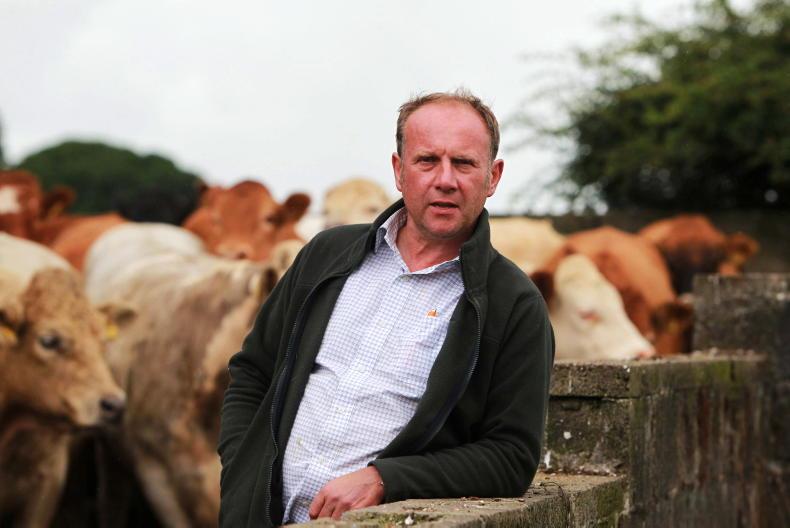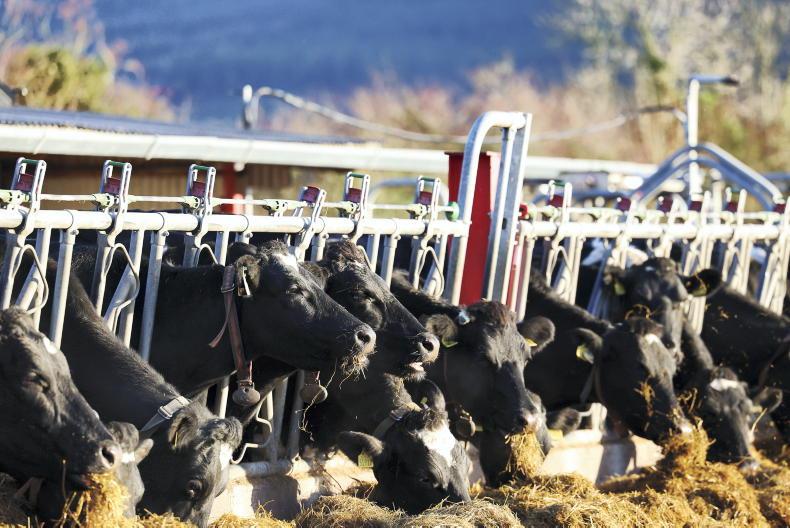Wet weather continues to delay farmers turning cattle out to grass, prolonging the winter housing routine of feeding and bedding.
While turn-out is unlikely to happen anytime soon, there are a few non-livestock related jobs to complete before cattle do hit grass.
Outlined are five tasks to consider.
1. Checking boundary fencing is secure
If farmers have not already done so, take a walk around grazing fields to check boundary fences are secure.
There were some major storms this winter, causing trees to fall. In some cases, fences were damaged or the tension taken out of wire by fallen trees.
Aim to get fences cleared of fallen debris, then repair wire and posts that have been damaged.
Ground may be soft, so just focus on sawing up branches for now, leaving cut timber in fields until ground conditions allow machinery to take it away.
2. Check electric wires and bridging joints
On farms with mains electric fencing around field boundaries, check that hedges are not overgrown and earthing the wire. Some fences will need wire re-tensioned.
Check insulators are all in place and not perished. Pay attention to wires at junctions such as field gates, where they connect to the next paddock or a spring handle at gateways.
Exposed wire can rust at these joints.
3. Mobile electric fencing units
Check battery fencers are in working order. Replace or fix the charge and earth leads that are damaged or corroded.
Purchase new batteries and leave solar units in a safe place to charge up before they are required for use.
Check reels are intact. Discard poly wires that are frayed or damaged, as they may not carry an even electrical charge, making it more likely animals will break through fences.
4. Drinking troughs
When walking field boundaries, take a bucket and empty out water troughs that have become bunged up with leaves or algae. Check there are no leaks at fill points from pipes freezing over winter.
5. Fixing hangers and adjusting field gates
Field gates should open and close freely. If not, adjust hangers or replace as needed.
Equally, adjust gates so they securely bar into the strainers and concrete gateposts.
Some gates do not open fully because there is a high spot at ground level. This can be a pain when trying to move cattle out of a paddock, as animals can run either side of gate.
It also makes it awkward getting machinery in and out of fields.
Is there access to a digger on farm to pull a few inches off any high spots catching gates, allowing them to open fully?
Read more
Scanning autumn calving cows before turnout
Dairy management: dealing with a silage shortage
Wet weather continues to delay farmers turning cattle out to grass, prolonging the winter housing routine of feeding and bedding.
While turn-out is unlikely to happen anytime soon, there are a few non-livestock related jobs to complete before cattle do hit grass.
Outlined are five tasks to consider.
1. Checking boundary fencing is secure
If farmers have not already done so, take a walk around grazing fields to check boundary fences are secure.
There were some major storms this winter, causing trees to fall. In some cases, fences were damaged or the tension taken out of wire by fallen trees.
Aim to get fences cleared of fallen debris, then repair wire and posts that have been damaged.
Ground may be soft, so just focus on sawing up branches for now, leaving cut timber in fields until ground conditions allow machinery to take it away.
2. Check electric wires and bridging joints
On farms with mains electric fencing around field boundaries, check that hedges are not overgrown and earthing the wire. Some fences will need wire re-tensioned.
Check insulators are all in place and not perished. Pay attention to wires at junctions such as field gates, where they connect to the next paddock or a spring handle at gateways.
Exposed wire can rust at these joints.
3. Mobile electric fencing units
Check battery fencers are in working order. Replace or fix the charge and earth leads that are damaged or corroded.
Purchase new batteries and leave solar units in a safe place to charge up before they are required for use.
Check reels are intact. Discard poly wires that are frayed or damaged, as they may not carry an even electrical charge, making it more likely animals will break through fences.
4. Drinking troughs
When walking field boundaries, take a bucket and empty out water troughs that have become bunged up with leaves or algae. Check there are no leaks at fill points from pipes freezing over winter.
5. Fixing hangers and adjusting field gates
Field gates should open and close freely. If not, adjust hangers or replace as needed.
Equally, adjust gates so they securely bar into the strainers and concrete gateposts.
Some gates do not open fully because there is a high spot at ground level. This can be a pain when trying to move cattle out of a paddock, as animals can run either side of gate.
It also makes it awkward getting machinery in and out of fields.
Is there access to a digger on farm to pull a few inches off any high spots catching gates, allowing them to open fully?
Read more
Scanning autumn calving cows before turnout
Dairy management: dealing with a silage shortage








SHARING OPTIONS